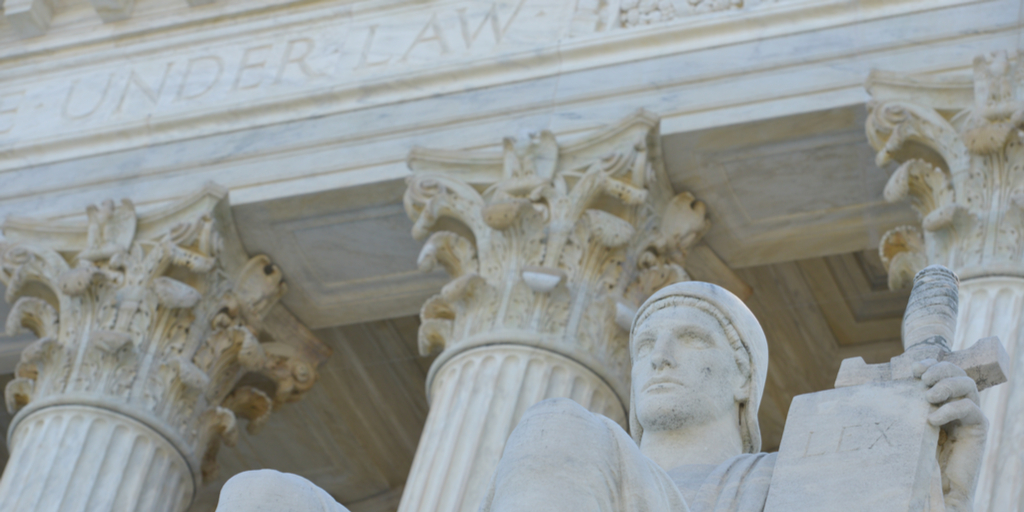A pilgrim’s journey is his own, and Justice Clarence Thomas has the confidence and self-awareness not to doubt his choices.
The Coming Resurrection of Raoul Berger? A Remembrance of Government by Judiciary
Raoul Berger (1901-2000) was the most important and daring voice in favor of an originalist approach to the Interpretation of the Constitution in the last third of the twentieth century. He was not, like many other academic theorists, someone who spent all his professional years as a tenured member of a prestigious faculty, although he was, for a few years, a professor at the law school of the University of California at Berkeley, and, following that, was Charles Warren Senior Fellow in Legal History, in residence at Harvard Law School. Before he was associated with law schools, however, Berger had been a successful concert violinist, and then an equally successful practicing lawyer and government bureaucrat. Once he embarked on his third or fourth (depending on how one counts) career, as a legal scholar, he achieved his greatest fame. Berger first made an indelible mark for monographs on impeachment and executive privilege, works which quite clearly suggested unpardonable excesses on the part of the Republican, Richard Nixon. That work was of great comfort to Democrats and liberals, but Berger’s scholarship was non-partisan. When he embarked on the research that resulted in Government by Judiciary, and that consumed him for the last three decades of his life (he lived to be just shy of 100, and wrote almost until the end), the progressives were dismayed and the conservatives jubilant, because Berger, as an originalist, provided a remarkable historical pedigree for the notion that progressive jurists had, for many years, wrongly construed the Constitution.
Berger’s brand of originalism was a bit different from that of the most important federal judges, such as Antonin Scalia, but it was clear that Scalia owed a lot to Berger. Berger believed in what he called “original intention,” while Scalia (and, in time, most originalists) embraced what came to be known as “original understanding.” Ostensibly this was a difference between the belief that we should seek the subjective intention of the Constitution’s framers, and the notion that it was the objective meaning of the words they used which ought to guide us. Hence Scalia’s frequent recourse to contemporary dictionaries, and Berger’s frequent use of opinions expressed in contemporary debates, as, for example, in his masterwork, Government by Judiciary.
In practice there may not really be much of a difference between Scalia and Berger, since, for the most part, one’s subjective meaning is consistent with the contemporary understanding of the words used. Nevertheless, since one really cannot easily look inside the skulls of drafters, Berger’s views were something of an easy target for some critics, who dismissed him as naïve and misguided. Time, however, has tended to support Berger and tarnish his critics, as Berger’s thorough sifting of the primary sources and his relentless defense against those whom he called the “activists” (the defenders really of judicial law-making) pretty thoroughly demonstrated the brilliance and correctness of his basic points.
Further, Berger wrote, essentially, in defense of the rule of law itself, since his central notion was that it was wrong for judges (or law professors, for that matter) to make law, and it was, instead, their task to aid in the faithful carrying out of the “founders design” (the subtitle of another important Berger monograph). Berger picked the title of Government by Judiciary: The Transformation of the Fourteenth Amendment to emphasize the emerging core principle of his jurisprudence, that it had been wrong for twentieth-century judges, particularly the Warren Court, and their academic supporters, to transform the meaning of the Fourteenth Amendment’s Section 1 in order fundamentally to alter the relationship between the state and federal governments. That section, it will be remembered, provided, in somewhat sparse language, that no state was permitted to “deprive any person of life, liberty or property, without due process of law,” nor to deny any person the “equal protection of the laws,” or to abridge the “privileges and immunities” of a citizen of the United States.
In the hands of the Warren Court the “due process” and “equal protection” clauses of that Amendment became a means of curtailing traditional state discretion in the area of religion, race relations, exercise of the franchise, and criminal procedure, and later, in the hands of the Berger, Rehnquist, and Roberts Courts, a tool to find a Constitutional right to abortion, to homosexual relationships, to same-sex marriage, and a host of other progressive desiderata, which could not be achieved through legislative efforts. The Courts, as is now well understood, became engines of progressive change, to an extent now quite possibly irreversible.
To anyone who cared about the original constitutional scheme, this was outrageous, and no one cared more than Berger. To say that his views cut against the grain of the prevailing liberal orthodoxy on Constitutional law would be to engage in considerable understatement, and the horror of many in the legal academic establishment at Berger’s views knew almost no bounds. But Government by Judiciary convincingly demonstrates that the purpose of the 14th Amendment, whether we look to the “intention” of its framers or to the contemporary understanding (the evidence supporting both inquiries is the same) was merely to provide a Constitutional basis for the 1866 Civil Rights Act. That Act, simply stated, was designed to guarantee that the newly freed Blacks would have the same rights to enforce contracts, to possess property and to enjoy the security of life and limb as did whites.
In other words, what the 14th Amendment was designed to do in supporting the 1866 Civil Rights Act, was to outlaw outlawry, to suggest that none of the formerly enslaved could be treated as outside the protections of the law. The Act, aimed at the Black Codes passed by some of the Southern States following the Civil War, could have been properly been construed then, to nullify those Codes, and later legislation generally known as the Jim Crow laws. Given its limited purpose, however, neither the Civil Rights Act nor the 14th Amendment could appropriately serve (as the Warren Court used it) as an engine for the wholesale transformation of the United States from a nation in which the state and local governments were paramount to one in which Supreme Court Judges, in the baleful words of Learned Hand, became Platonic Guardians, unelected ephors, presiding over our polity, and dictating policy.
This meant, then, that the Supreme Court’s “incorporation” doctrine whereby the 14th Amendment was read to have grafted all or part of the First Ten Amendments onto the 14th, so that, for example, the prohibition clearly on acts of Congress in the 1st Amendment could be read to empower the federal courts to nullify acts of state and local governments, was a judicial usurpation. This meant, then, that the Warren Court’s rulings that bible reading and school prayers mandated by state and local law could not stand, and further, that the Warren Court’s restrictions of state and local police practices on 4th Amendment grounds were equally illegitimate. If, then, as Berger believed, “the incorporation doctrine” was wrong, these matters should have been left to the discretion of the state and local governments. In the same vein, Berger demonstrated that not by any stretch of the imagination could the framers of the Fourteenth Amendment have believed that they were denying state and local governments control over the franchise or the education of their children, which meant, of course, that if one were to be faithful to the originalist theory Berger limned, the “one man, one vote” doctrine of Reynolds v. Sims and Baker v. Carr were wrong, and so was the desegregation mandate of Brown v. Board of Education.
Not even Justice Scalia was prepared to go the full length that Berger suggested, and Scalia himself at one time admitted that he was but a “faint-hearted” originalist. Clarence Thomas, however, has expressed views much closer to those of Berger, and it may well be that Neil Gorsuch will acquire a reputation as less faint of heart than Scalia. For now those whom Berger scorned as “activists” remain dominant in the law schools, in the bar, and even in the majority on the United States Supreme Court. That judges in our time are self-consciously law makers rather than law finders simply cannot be denied in the age of NFIB v. Sebelius and Obergefell v. Hodges. The last of the notoriously arbitrarily activist Justices, Anthony Kennedy, may soon be retiring from the Court, and, if President Trump succeeds in appointing another conservative originalist like Justice Gorsuch, it may well be that Government by Judiciary will once again become required reading, an era of the “living Constitution” will come to an end, and we will witness the needed vindication of Raoul Berger.
One can hope.


